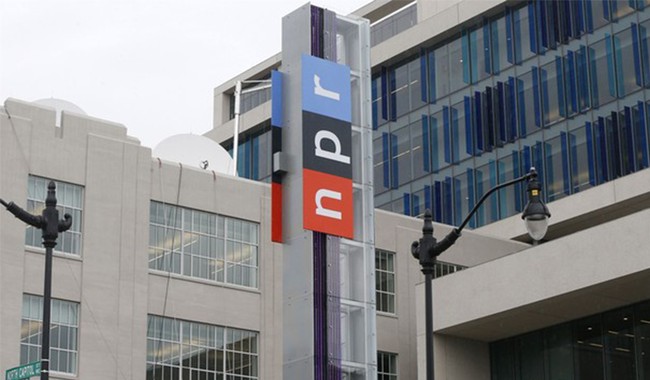
To hear National Public Radio (NPR) CEO Katherine Maher tell it, the loss of federal funding for the public network is as close to nuclear armageddon we can get without, you know, actually experiencing a nuclear attack.
No matter. It’s really, really, really bad, says Maher.
“There’s a real understanding of the need there, as well as for emergency alerting, in which public media plays an extraordinarily important role,” she said.
We absolutely have to have this 19th-century technology to warn rural Americans of an “emergency”?
NPR CEO Katherine Maher argues rural America often has no other possible source of news or connection to the outside world EXCEPT through PBS and NPR: “Large rural communities, large tribal communities” don’t have “a lot of other options. Broadband service is not universal, and… pic.twitter.com/OFWuQTCa2E
— Curtis Houck (@CurtisHouck) July 16, 2025
Her comment elicited some well-deserved scorn.
Do these people think rural Americans don’t have running water and electricity and only go to town once a month with a mule to pick up supplies for the farmstead on the frontier?
— Big G (@Aaragoth) July 16, 2025
Reason.com’s Robby Soave performed the necessary lobotomy on Maher’s ludicrous argument.
This argument is hard to take seriously. While it’s true that there are places in the U.S. that don’t have reliable internet access, it does not follow that federally subsidizing an outmoded means of distributing information is the answer. If the government is going to do something about a lack of connection, it should spend more money on building infrastructure or clearing the way for private interests to provide the services that people need. If they value it, they will pay for it. And during an age in which Elon Musk’s Starlink can use satellites to provide high-speed internet to war-torn Ukraine, the idea that the U.S. government should continue to pay for a specific editorial product because it’s the best way to transmit emergency information strains credulity.
Maher was noted for pretending that NPR was free of bias and was an objective news source. That must be why they ran stories on their website like these:
Related: Why Is Cutting 0.1% of the $6.75 Trillion Federal Budget So Hard?
Long-time NPR business editor Uri Berliner wrote a scathing exposé of radical left bias at the network in April.
Berliner had sounded the alarm internally at NPR for years over the public’s loss of trust in the network before coming forward with his story in The Free Press. He wrote that “an open-minded spirit no longer exists within NPR, and now, predictably, we don’t have an audience that reflects America. That wouldn’t be a problem for an openly polemical news outlet serving a niche audience,” he continued, “but for NPR, which purports to consider all things, it’s devastating both for its journalism and its business model.” A New York Times investigation later showed that NPR’s weekly audience has dropped from an estimated 60 million in 2020 to about 42 million today.
As Robby Soave points out, cutting off NPR and PBS from federal dollars is not censorship. In fact, it’s the opposite of the term. “NPR should be free to make its own editorial choices—even ones that are pathologically unfriendly to Trump—and Americans should be free to choose whether they want to pay for it,” writes Soave.
In the internet age, are there any viewpoints that can’t find a media outlet? The Constitution doesn’t guarantee your views will be heard, just that you can’t be prevented from giving voice to them. With hundreds of media outlets on streaming, cable, satellite, and over-the-air broadcast, the glorious diversity of American opinion is there for anyone to see.
I suspect that having to compete for attention scares Maher and her public broadcasting compatriots. Shedding their stuffed shirts and adopting a more entertaining style wouldn’t do public TV or radio any harm at all.
It might even make them worth watching.
Editor’s Note: The mainstream media continues to deflect, gaslight, spin, and lie. Help us continue exposing their grift by reading news you can trust. Join PJ Media VIP and use promo code FIGHT to get 60% off your membership.

















